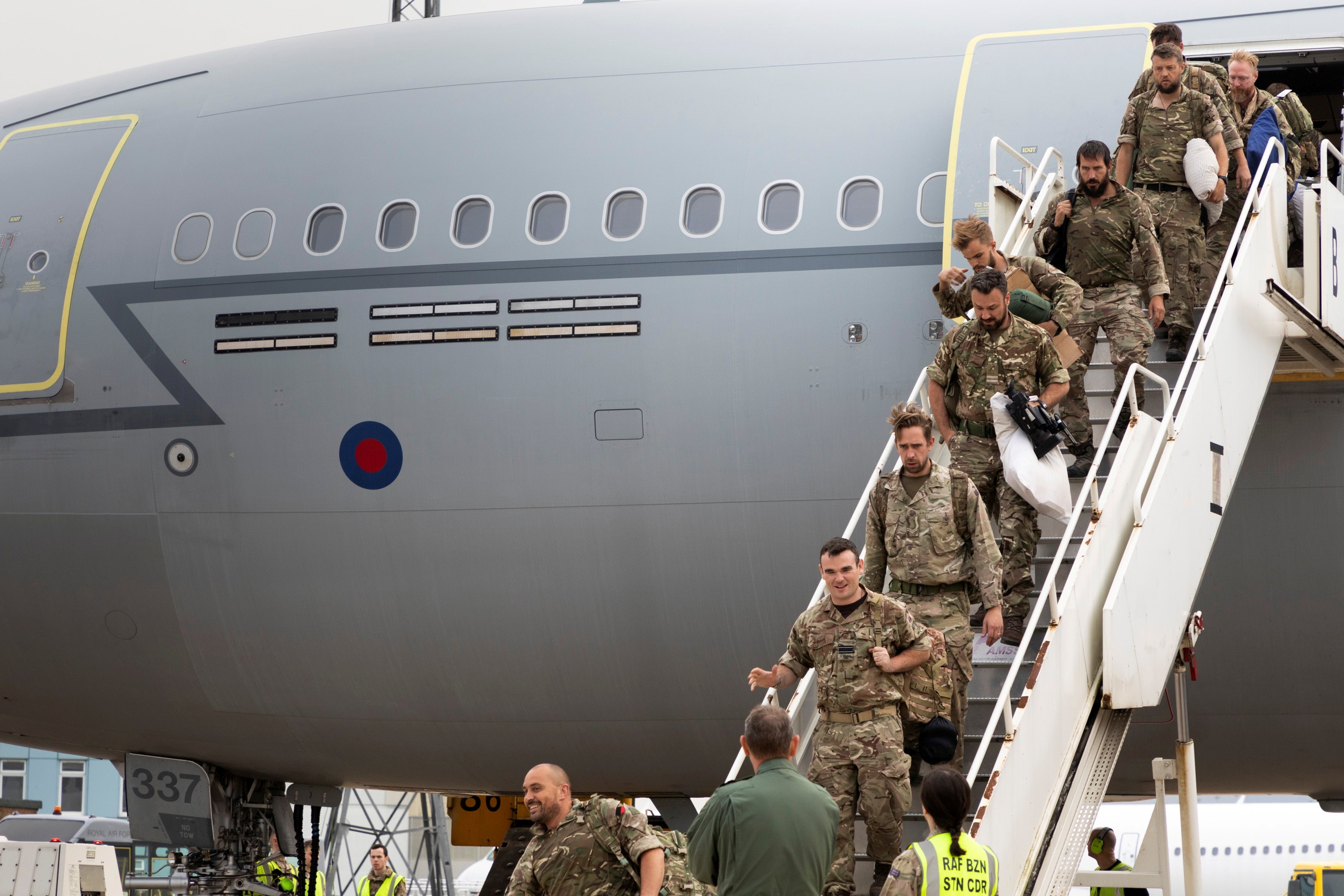Afghanistan: RAF prepared to strike against IS despite western withdrawal, officer says
Armed forces prepared to fight terrorism ‘whether it’s strike, or whether it’s moving troops,’ says Sir Mike Wigston

Your support helps us to tell the story
From reproductive rights to climate change to Big Tech, The Independent is on the ground when the story is developing. Whether it's investigating the financials of Elon Musk's pro-Trump PAC or producing our latest documentary, 'The A Word', which shines a light on the American women fighting for reproductive rights, we know how important it is to parse out the facts from the messaging.
At such a critical moment in US history, we need reporters on the ground. Your donation allows us to keep sending journalists to speak to both sides of the story.
The Independent is trusted by Americans across the entire political spectrum. And unlike many other quality news outlets, we choose not to lock Americans out of our reporting and analysis with paywalls. We believe quality journalism should be available to everyone, paid for by those who can afford it.
Your support makes all the difference.The RAF is prepared to launch air strikes against Islamic State fighters in Afghanistan – if the situation presents itself, according to a senior officer.
It comes after the terror network’s Afghan offshoot, Isis-K, claimed responsibility for the attack on Kabul airport, which was carried out on Thursday and killed two Britons, the child of a British national, as well as 13 US service personnel and hundreds of Afghan civilians.
While the international community appears to have accepted the reality of Taliban rule, the UK and US remain willing to take on Islamic State, also known as Daesh.
Sir Mike Wigston, an air chief marshal, suggested the RAF could strike Isis-K targets in Afghanistan as a result.
“Ultimately what this boils down to is that we’ve got to be able to play a global role in the global coalition to defeat Daesh, whether it’s strike, or whether it’s moving troops or equipment into a particular country, at scale and at speed,” he told The Daily Telegraph.
“If there’s an opportunity for us to contribute I am in no doubt that we will be ready to – that will be anywhere where violent extremism raises its head, and is a direct or indirect threat to the UK and our allies.
“Afghanistan is probably one of the most inaccessible parts of the world, and we’re able to operate there.”
US forces officially withdrew from Afghanistan on Monday, a day ahead of the deadline set by president Joe Biden, bringing to an end a deployment which began in the wake of the 9/11 attacks 20 years ago.
The UK finished evacuating British nationals and eligible Afghans from the country on Saturday.
Prior to Sir Mike’s comments, foreign secretary Dominic Raab said the global coalition against Isis was ready “to combat Daesh networks by all means available, wherever they operate”.
The attack on Kabul airport last week has led to a transatlantic blame game, with US sources indicating the gate that was attacked was kept open to facilitate the British evacuation.
According to leaked Pentagon notes obtained by Politico, rear admiral Peter Vasely, the commander of US forces in Afghanistan, had wanted to close Abbey Gate but it was kept open to allow UK evacuees into the airport.
Ministry of Defence (MoD) officials said that throughout the operation at the airport “we have worked closely with the US to ensure the safe evacuation of thousands of people”.
The final US troops left Kabul on a flight shortly before midnight local time on Monday, meeting Mr Biden's commitment to withdraw ahead of the deadline. Moments later, the Taliban proclaimed “full independence” for Afghanistan.
The new regime faces pressure to respect human rights and provide safe passage for those who wish to escape its rule following the passage of a UN Security Council resolution. The council adopted a resolution in New York – with Russia and China abstaining rather than wielding their vetoes – in what the UK hopes is a step towards a “unified international response”.
But the resolution effectively acknowledges that it is now up to the Taliban to decide whether people can leave Afghanistan.
Boris Johnson said of the move: “Tonight’s UN Security Council resolution, led by the UK with our allies, makes clear that the international community stands with Afghans. There can be no return to repression or terror. We will push as one voice for safe passage, humanitarian access and respect for human rights.”
The prime minister is said to be hopeful that Moscow and Beijing can wield some influence over the new Afghan government on issues including counter-terrorism and the trade in narcotics, preventing a refugee crisis and further economic collapse.
Additional reporting by PA
Join our commenting forum
Join thought-provoking conversations, follow other Independent readers and see their replies
Comments